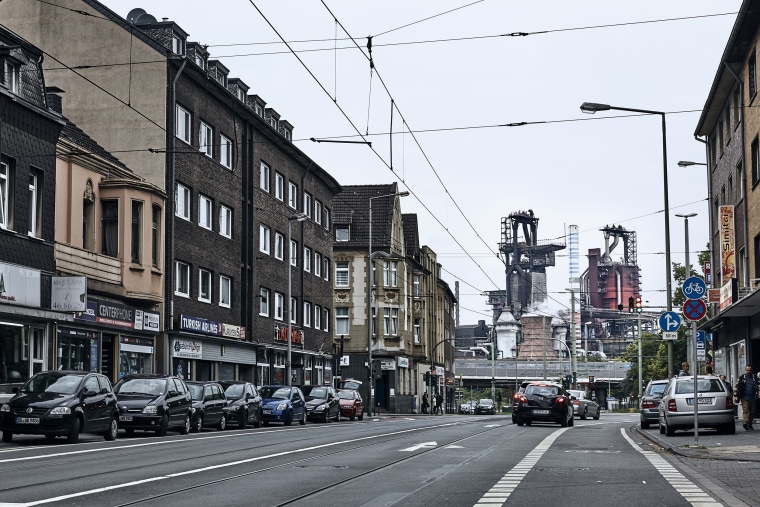DUISBURG, Germany — Restaurant owner Harun Kiki admits that he has to rely on his wife's language skills to go about daily life in the country he's called home for 18 years.
“My German neighbors try to speak to me over the garden fence but I can’t really speak to them,” the Turkish national explained. "Sometimes I feel like a little child. I can’t really express my feelings."
Kiki, 43, could be accused of living in a parallel society. He spends most of his time enveloped by the substantial Turkish community in this industrial city.
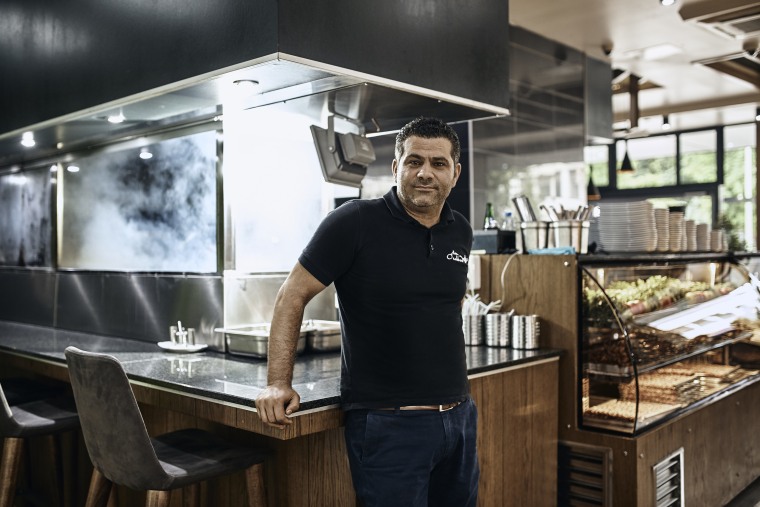
But Kiki bristled when asked whether he could be perceived as an example of how some Turks have failed to integrate into German society. He is a self-made businessman who runs a successful upscale restaurant and contributes to the local economy.
“I admit it’s right that I should be made to learn German, but I would also say I have a business which employs 40 people and I pay my taxes here,” he said, as chefs busied themselves behind glass counters filled with freshly prepared meats and vegetables.
Almost 3 million people of Turkish origin or descent live in Germany, many the second- and third-generation relatives of guest workers who were welcomed during the economic boom of the 1950s and ’60s.
The more recent influx of 1 million migrants who arrived as Chancellor Angela Merkel opened the borders of Europe's economic powerhouse in 2015 has reignited an uncomfortable debate about what it means to be German.
The issue of national identity has traditionally been complicated by the legacy of World War II.
Plagued by historic guilt, Germans have been hesitant to be too self-confident or cheerful in expressing national pride, fearing that modern-day patriotism could quickly be seen as a form of nationalism too close to its Nazi past.
While Merkel insisted "we can do this" when allowing the asylum-seekers to enter, her decision has spurred on the political resurgence of the far-right.
For Germans of Turkish background, the country's largest minority group, their experience may offer a glimpse of the struggle with identity that migrants who arrived in 2015 will almost certainly face in the future. Some 60 years after many of their parents and grandparents arrived, many of them say they still do not feel accepted here.
That sentiment was exposed last month when German-born soccer superstar Mesut Özil, whose grandparents relocated from Turkey, resigned from the national team. He accused its officials of racism.

“I am a German when we win, but I am an immigrant when we lose,” he said in the letter announcing his decision. "I am still not accepted into society."
Özil pointed out that former national team colleagues Lukas Podolski and Miroslav Klose "are never referred to as German-Polish, so why am I German-Turkish?"
He added: "Is it because I am a Muslim? ... I was born and educated in Germany, so why don't people accept that I am German?"
'I feel like I'm in Turkey here'
It is easy enough to see how it's possible for someone like Kiki, the restaurant owner, to have not learned German after almost two decades in a place like Duisburg.
Turkish is the language predominantly spoken at the tables and in the open kitchen at his business.
And only a short walk away, the Marxloh district buzzes with more Turkish restaurants and the soft sound of the Muslim call to prayer.
The neighborhood is home to one of the country’s largest mosques and the Wedding Mile, a shopping destination for Turkish brides-to-be from across Europe.
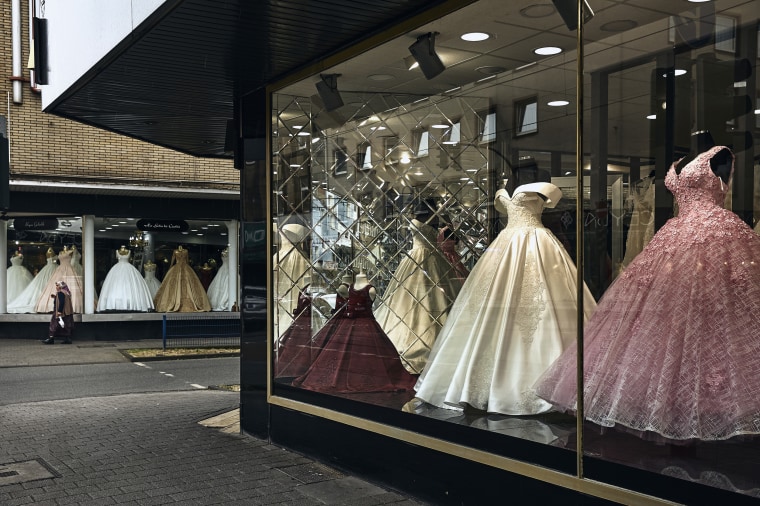
While it is by no means only Turkish people who frequent the district, it feels distinct from the rest of the city.
“I feel like I’m in Turkey here,” said Ayse Kara, a Turkish cashier at a gift store halfway down the street packed with bridal outlets.
“My family is here and I don’t have to go far to get great Turkish food,” she said, pausing to speak to customers in Turkish.
Two hearts — German and Turkish
When Özil tried to explain to fans why he was quitting the German national team, he said he had two hearts: “one German and one Turkish.”
Mehmet Uzan, 33, is a street cleaner born and raised in Germany. But when faced with having to pick a passport, he opted for Turkish citizenship instead of obtaining a German one. That decision means he can't vote in Germany.
“My heart is still Turkish,” said Uzan, whose father came to Germany in 1966 as a guest worker and found a job in a Ford automotive plant.
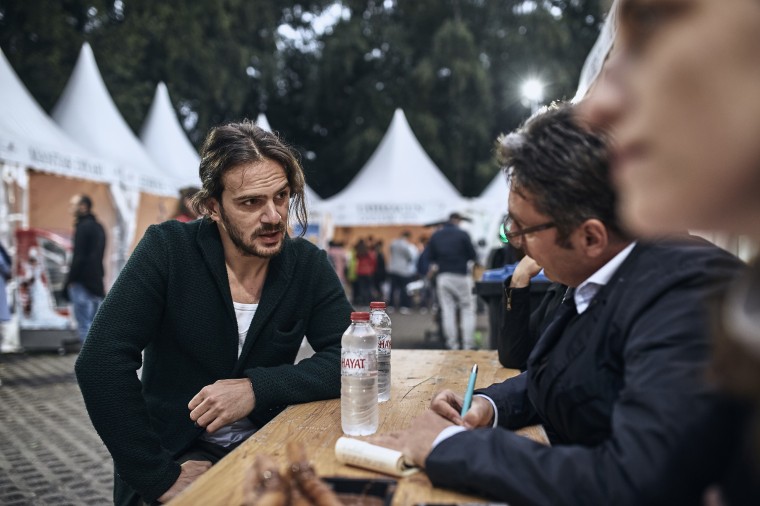
Uzan says he does not feel fully welcome or like he truly belongs here and said much of his identity is still rooted in the customs and traditions of his forefathers.
Uzan isn't alone. Experts say many second- and third-generation people of Turkish descent in Germany feel similarly conflicted.
A report published last month by the Center of Turkish Studies at the University of Duisburg-Essen found that most people with Turkish roots living in Germany feel more connected to Ankara than to Berlin.
“The younger generation is in an identity crisis,” said Serap Güler, a local official with responsibility for refugees and integration in the state where Duisburg is.
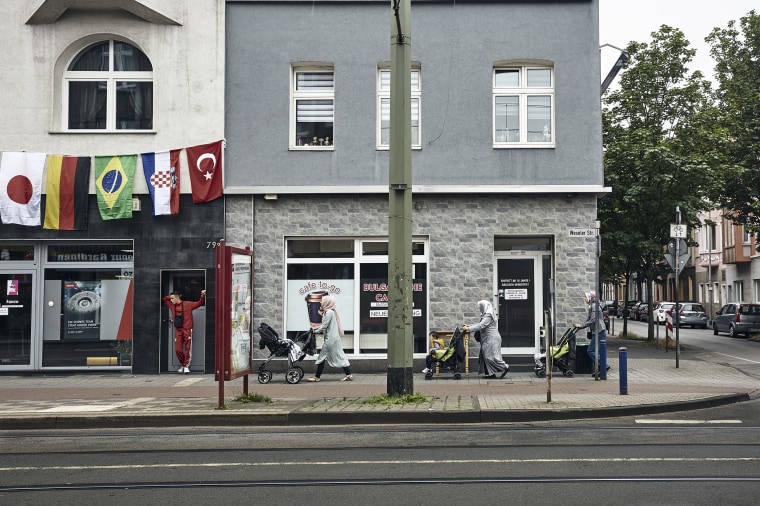
She said that people whose grandparents had moved to Germany appeared to be struggling the most with such questions.
“They have the feeling that no matter what they do, no matter how hard they strive, whatever they deliver, they will never be accepted as Germans,” Güler said.
This often leads them to feel Turkish, even though their knowledge of the country and its language is often limited.
Randall Hansen, the interim director of the Munk School of Global Affairs and Public Policy at the University of Toronto, says it’s not unusual for the children and grandchildren of migrants to feel less welcome than those who actually relocated.
“When their parents came they were just grateful to get a job, to be left alone, to not be beaten up in the street," he said. "But anyone who was born here expects to be treated like any other German."
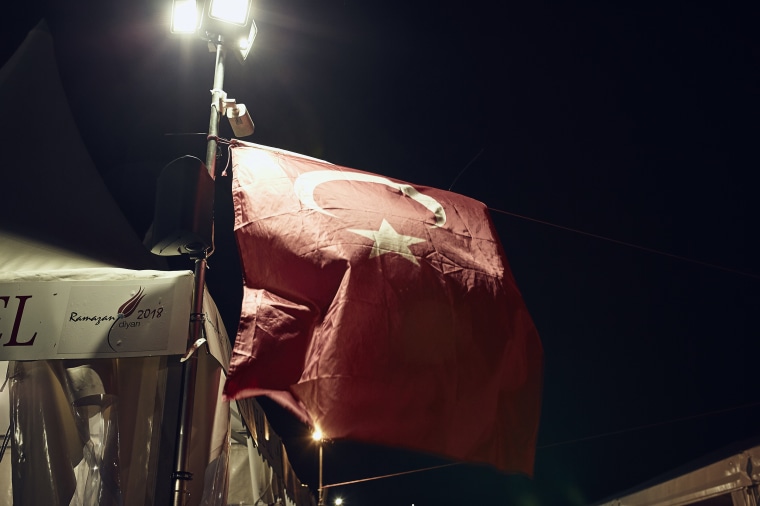
Hansen said assimilation can often be difficult because Germans themselves "don't really know what it means to be German."
The U.S. has been built around the concept of the melting pot, Canada promotes a multicultural society and France pushes a positive assimilation model, with a clear idea of national identity. But Germany doesn't slot neatly into any of these traditions, Hansen said.
"If there’s a binding identity in Germany it’s constitutional patriotism," he said, defining this as the belief in the rule of law and broad support for liberal values, such as the rights of women and ethnic minorities.
Changing times
Some Germans find Turkish pride difficult to process, particularly when it's boldly and blatantly on display.
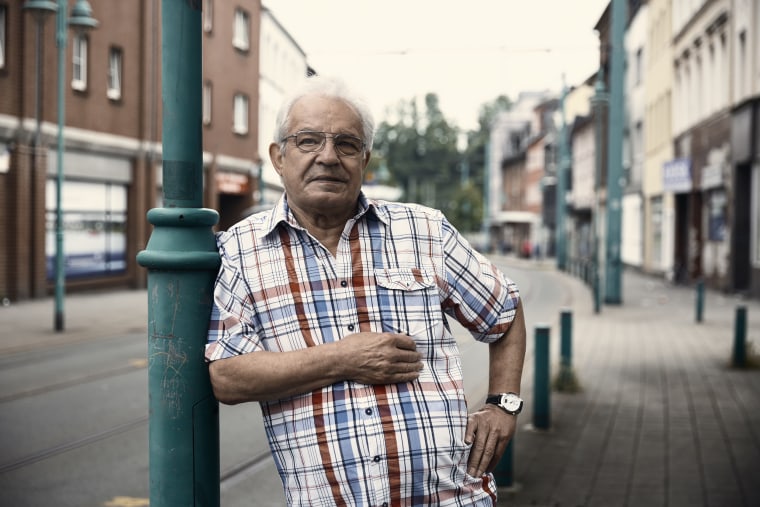
“I don’t like it when I see a big Turkish flag running the length of a house,” retired electrician Heinz Bandurski, 73, said from the Duisburg-Laar neighborhood.
"They should decide whether they are Turks or Germans, but they can’t be both," he added, explaining that he felt that being German meant espousing the German way of life.
Bandurski, who used to work for a local steel company, said he wasn’t surprised that people of Turkish descent didn’t always feel at home in Germany. He says that's because some isolate themselves.
“There are Turkish women who have lived here for 40 to 50 years and only speak Turkish,” he said.
While Bandurski said he doesn't like seeing women wear the full-length veil, he doesn't mind Turkish women wearing headscarves. “My grandmother wore a headscarf,” he explained.
Most of all, Bandurski says he misses the days when his neighborhood was more vibrant and there were fewer foreigners.
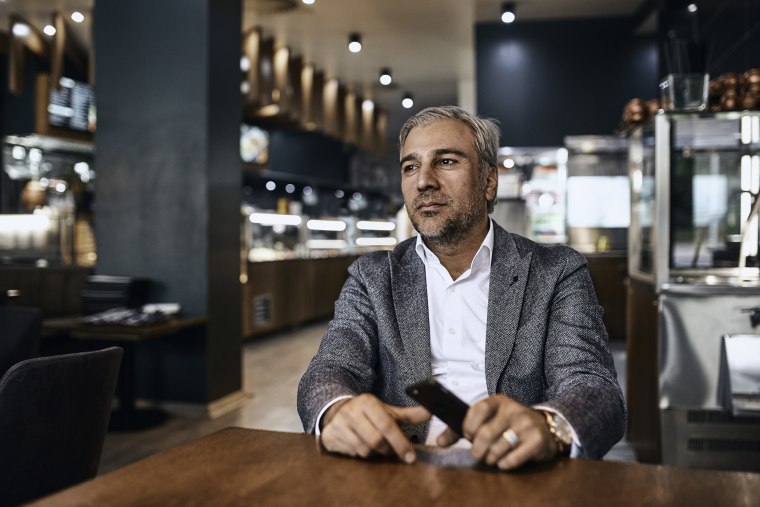
But local businessman Yücel Güngör said the Turkish identity should be celebrated as part of German culture, rather than discarded as an example of failed integration.
Güngör, whose parents moved to Germany from Turkey, said he gets frustrated when German politicians promote the idea of assimilation.
“This would mean we would have to dream German, think German. I would have to give up my culture and heritage when what I want to do is pass it on to the next generation,” he said, sitting in a gold-lacquered throne in his niece’s bridal store off the Wedding Mile.
Far-right fervor
The perception among many people of Turkish descent interviewed by NBC News in Duisburg is that xenophobia and Islamophobia are growing problems in Germany.
And the national identity debate in Germany now often centers on the question of whether it is a healthy patriotism or poisonous nationalism.
A poll in June suggested that German society is struggling with racism: Sixty-four percent of people said that racism was either a "very big problem" (17 percent) or a "big problem" (47 percent).
“Many Germans just don’t want foreigners to live here,” said Uzan, the street cleaner. He cited the rise of the far-right AfD party, which captured 12.6 percent of the vote and 94 seats in Parliament in last year's federal election.
In the district of Duisburg-Hamborn, which includes the neighborhood featuring the Wedding Mile and Kiki’s Turkish restaurant, the party won almost 20 percent support.
The AfD has played heavily on the rising numbers of Muslim migrants in the country. “Burqas?” read one campaign poster before the election. “We prefer bikinis.”
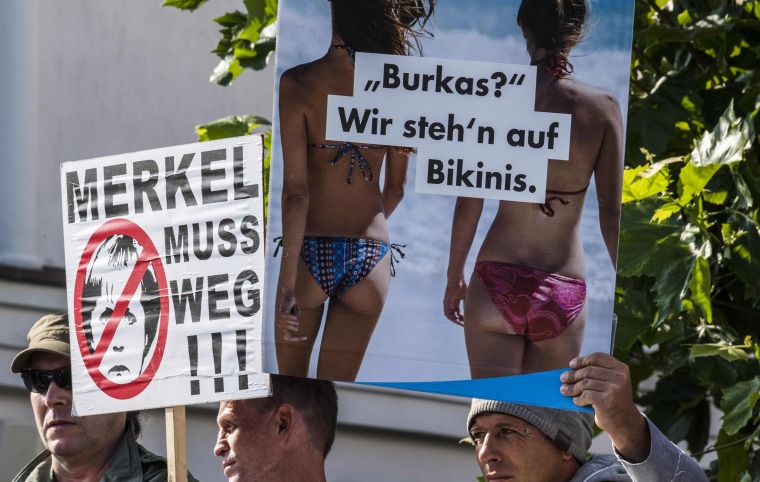
And it's not just the far-right who have questioned Islam’s place in Germany, which has a population of around 82 million people.
“Islam does not belong to Germany,” but the Muslims living in the country “of course do,” German Interior Minister Horst Seehofer said this year.
In April, the German state of Bavaria made it mandatory for government buildings to display a crucifix.
But the sense of rising Islamophobia goes beyond political speech. Last year, the German Interior Ministry recorded 1,075 Islamophobic crimes across Germany, the majority of which were linked to the far-right.
A recent study released by the Pew Research Center found that around one in three Germans would not accept a Muslim into their family.
But not everyone of Turkish origin feels torn by their dual identity.
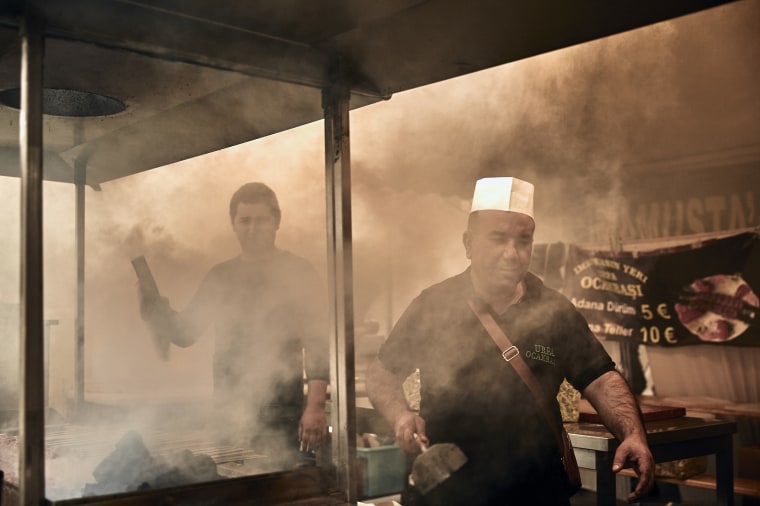
Kaan Akuslug, 21, who works as a waiter at his uncle Kiki’s restaurant, says he feels half German and half Turkish.
“I have both German and Turkish friends,” he said, explaining that he’s never encountered either racism or xenophobia.
“We grew up together,” he added. “You can be both German and Turkish."
